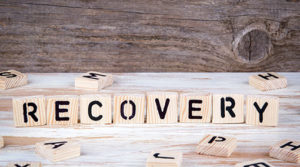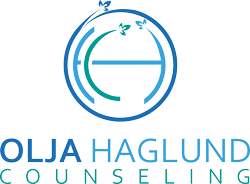Substance Abuse Counseling
Worried You’re Losing Control Over Your Urges?
Are you in addiction recovery or growing concerned about your substance use? Have you noticed an increase in your alcohol or drug use, despite not qualifying your behaviors as addictive? Would you simply like to cut down on substance use and integrate healthier lifestyle choices?
You may be in recovery from drug or alcohol use and looking for extra support during particularly stressful life events. Perhaps you’re relatively new to the world of recovery and concerned about the possibility of relapse, and thus, you’re seeking the guidance of an addiction counselor to help reinforce positive behaviors.
Or maybe you’re well into recovery but looking to address the co-occurring conditions that caused you to develop a dependency in the first place. You may find that instances of a traumatic memory, relationship issues, and/or symptoms of anxiety have caused you to use in the past, and you’re now looking for support about how best to avoid relapse when distressing moments arise.
Alternatively, you may not believe that your substance use warrants the label of a full-blown addiction, but you’re nevertheless worried about a tendency to self-medicate. Perhaps you’ve noticed that during particularly stressful periods, you turn to alcohol, marijuana, prescription drugs, or binge eating to numb the pain. It may be that you realize an unhealthy dependence has formed, and you’d like to address the issue before it spirals out of control.
The truth is that alcohol and other drug dependencies often stem from long-standing negative beliefs that result in low self-esteem. And while the process of overcoming substance abuse requires a lot of hard work and boundary-setting, counseling can help you feel supported, understood, and encouraged along the way.
Society Normalizes And Often Celebrates Substance Abuse
Our culture creates many opportunities for substance use and dependency. Many of us are socially conditioned to use substances as a social lubricant for thwarting anxiety, and as more drugs become legalized and normalized in their use, the potential for dependency increases.
Once we are engineered to reach for the bottle, the pipe, or the fridge when stressors accumulate, it can be very hard to learn how to cope in other healthier ways. Socioeconomic factors are regularly at play when it comes to substance abuse, as issues of racism, wealth disparity, and inaccessibility exacerbate the symptoms of anxiety and depression that drive individuals to use. Moreover, unique elements of one’s history, including past traumas and co-occurring mental health issues, are often risk factors when it comes to determining the potential for substance abuse in certain populations.
Unfortunately, substance abuse and addiction carry a stigma of shame and denial with them. As with other mental health issues, feelings of guilt, isolation, and embarrassment can often prevent users from seeking the help they need. Yet therapeutic treatment offers the validation that substance abuse and addiction are complex and nuanced issues that can be resolved with the help of a therapist, support group, and access to effective mental health care.
Counseling Gives You The Tools And Perspective Needed To Recover From Substance Abuse
Quitting a substance is not just about maintaining sobriety. It’s also about learning to manage difficult emotions that may have once been a cause for self-medication and strengthening relationships that may have been compromised by use. As such, therapy provides you with an opportunity to sustain positive change over time by giving you tools for emotional regulation, stress management, boundary setting, and interpersonal communication.
Beginning with an intake that will first identify where you are in the recovery process, we will use a treatment plan that is tailored to fit your needs for substance abuse counseling. As I develop a better understanding of where you are on your journey, we will discuss your goals for therapy and the strategies that will be most effective in helping you to achieve them.
If substance abuse counseling is a condition of your probation, I will make sure to facilitate a treatment plan in accordance with your program. In addition, I am a strong believer in the value of group support when it comes to overcoming addiction. With this in mind, I’m prepared to refer you to support groups, 12-step programs, and other community opportunities that may help you along your journey to sobriety.
Much of the initial time spent in substance abuse counseling will be discussing the stages of change and risk factors for relapse. As you may know, the stages of change describe the sequence of recovery from precontemplation to contemplation to preparation to action. We will explore that sequence while also including issues of maintenance and relapse as we begin the process of normalizing and investigating your relationship to substances.
Counseling techniques like motivational interviewing will help you to feel safe and comfortable in exploring your experiences, especially if they involve relapse, while Cognitive Behavioral Therapy (CBT) will help you to adjust the relationship between your thoughts, feelings, and actions. In addition, mindfulness strategies will be used to help you remain present in stressful moments so that you can regulate your emotions with calm and composure.
Because those struggling with substance abuse are fearful of using again, I aim to emphasize that relapse is normal, common, and a significant step in the process of recovery. In our sessions, we will identify the risk factors for relapse and develop a toolbox so you can handle the urges to use that will inevitably arise.
By the time you’re finished with substance abuse counseling, it is my hope that you’ll have the insight and tools for achieving lasting lifestyle changes. And once you have the necessary toolbox for identifying distress, re-establishing control, and preventing relapse, you’re likely to notice improvements in your life’s central relationships as symptoms of anxiety and depression dwindle.
 Anything is possible—including your ability to overcome substance use and achieve sobriety.
Anything is possible—including your ability to overcome substance use and achieve sobriety.
Since 2005, I have worked as a Certified Advanced Alcohol and Drug Counselor (CAADC) and seen the value of counseling when it comes to substance abuse and addiction treatment. There is hope for your recovery and a new realm of possibilities through therapy.
Perhaps you’re ready to commit to substance abuse counseling, but you have some concerns…
I’m afraid to give up substances entirely.
I understand that it is difficult to give up something that has comforted you in the past. However, therapy gives you the opportunity to determine what is at the root of your urge and develop alternative mechanisms for coping. You may find that once you know more about your cravings or dependencies, they’ll have less sway over you, and sobriety will feel much more manageable.
The nature of my social life relies on drug and alcohol use—how do I stop engaging and still keep my friends?
If you’re concerned about how sobriety or recovery will impact your social life, I encourage you to take the opportunity and let substance abuse counseling empower you in differentiating between beneficial behaviors and counterproductive ones. So much of substance abuse is about control. Yet, once you can develop an understanding of how your use impacts your behaviors and the relationships with those around you, you’ll be able to identify which of your relationships are helpful to your recovery and which ones are undermining it. Our primary goal is to get you to adapt to alternative coping mechanisms and use the healthy relationships in your life to help you find success in recovery.
I stopped using already. Why do I need substance abuse counseling?
Therapy is extremely useful in helping you to determine what factors drove you to use and become dependent in the first place. So often substance abuse is co-occurring with other mental health challenges that typically take root in trauma and emotional distress. When you have a sense of what is or was at the core of your addiction, you’ll be better prepared to prevent relapse and engage in the healthy lifestyle you’re looking to cultivate.
Re-Establish A Sense Of Control And Capability In Your Life
If you’re concerned about your alcohol and/or drug use, or if you’re in recovery and looking for support on your path to sobriety, substance abuse counseling can give you tools for promoting healthy and sustainable changes. To learn more about my services or to schedule a free, 15-minute consultation to see if we’re a good match, call (616) 835-0215 or contact me today.
Articles Related to Substance Use
No Results Found
The page you requested could not be found. Try refining your search, or use the navigation above to locate the post.
